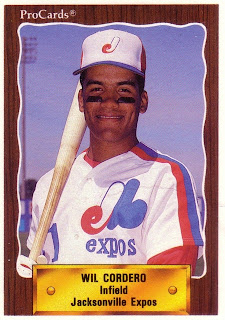Geovany Miranda saw 7 seasons, AAA: Baseball Profiles

Geovany Miranda was eager playing infield for the short-season Eugene Emeralds in July 1990. The Panama-native was on his third season of professional baseball. And he knew what he needed to improve, that was to play, according to The Eugene Register-Guard . "I want to play baseball," Miranda told The Register-Guard that July. "I want to play every day. I do not want to rest." Baseball is what brought Miranda to the United States, signed by the Royals as an undrafted free agent in 1988. Years later, long after his playing career was over, it was baseball Miranda turned to stay in the United States . Miranda's first stop with the Royals was in the rookie Gulf Coast League . He played there his first two professional seasons. He hit .231 his first season there and .311 his second. He moved to single-A Appleton in 1990, getting into 55 games there, but hitting only .227 . By mid-year, he moved back to Eugene, hitting .338 the rest of the way. Mir...













